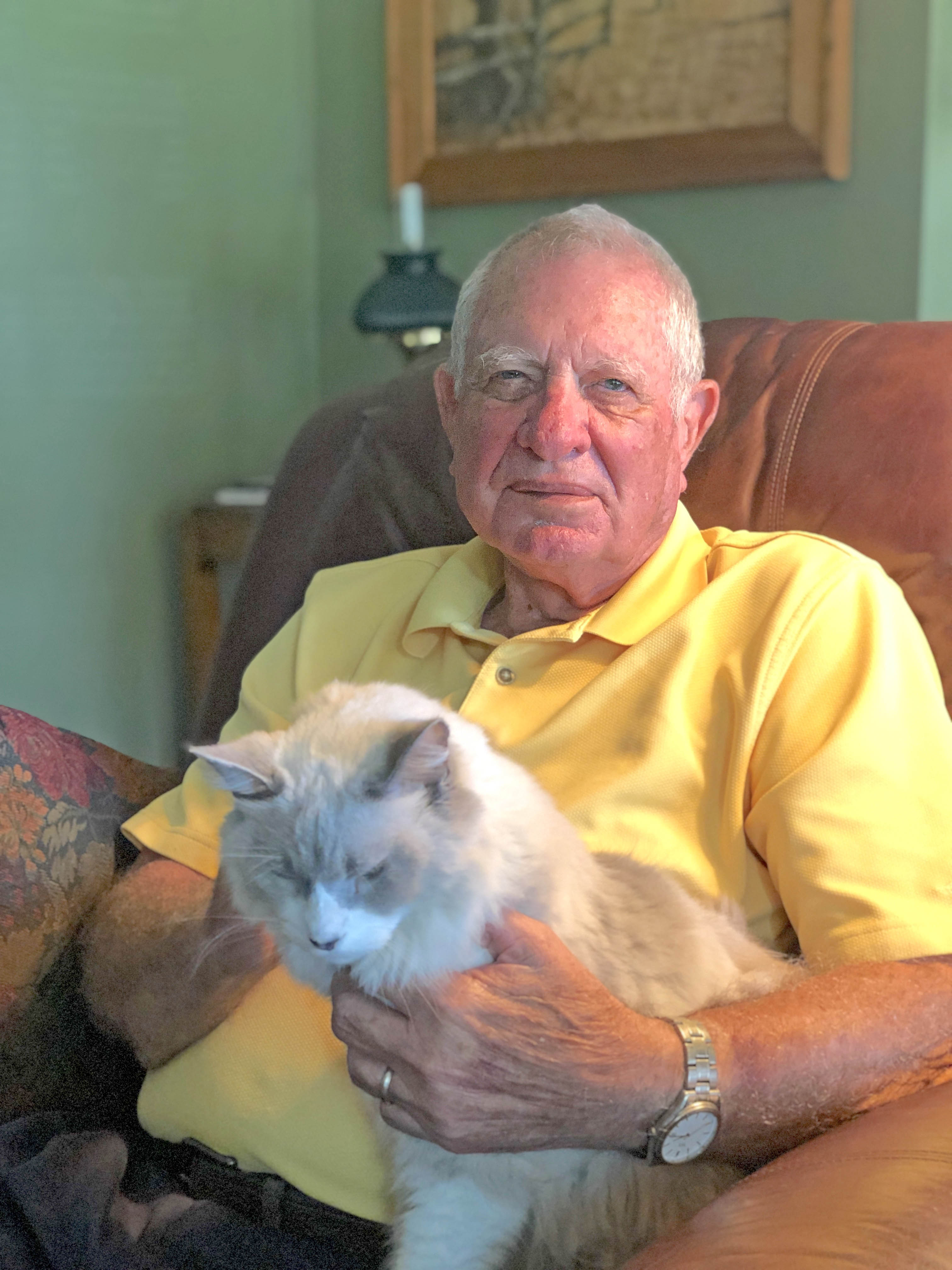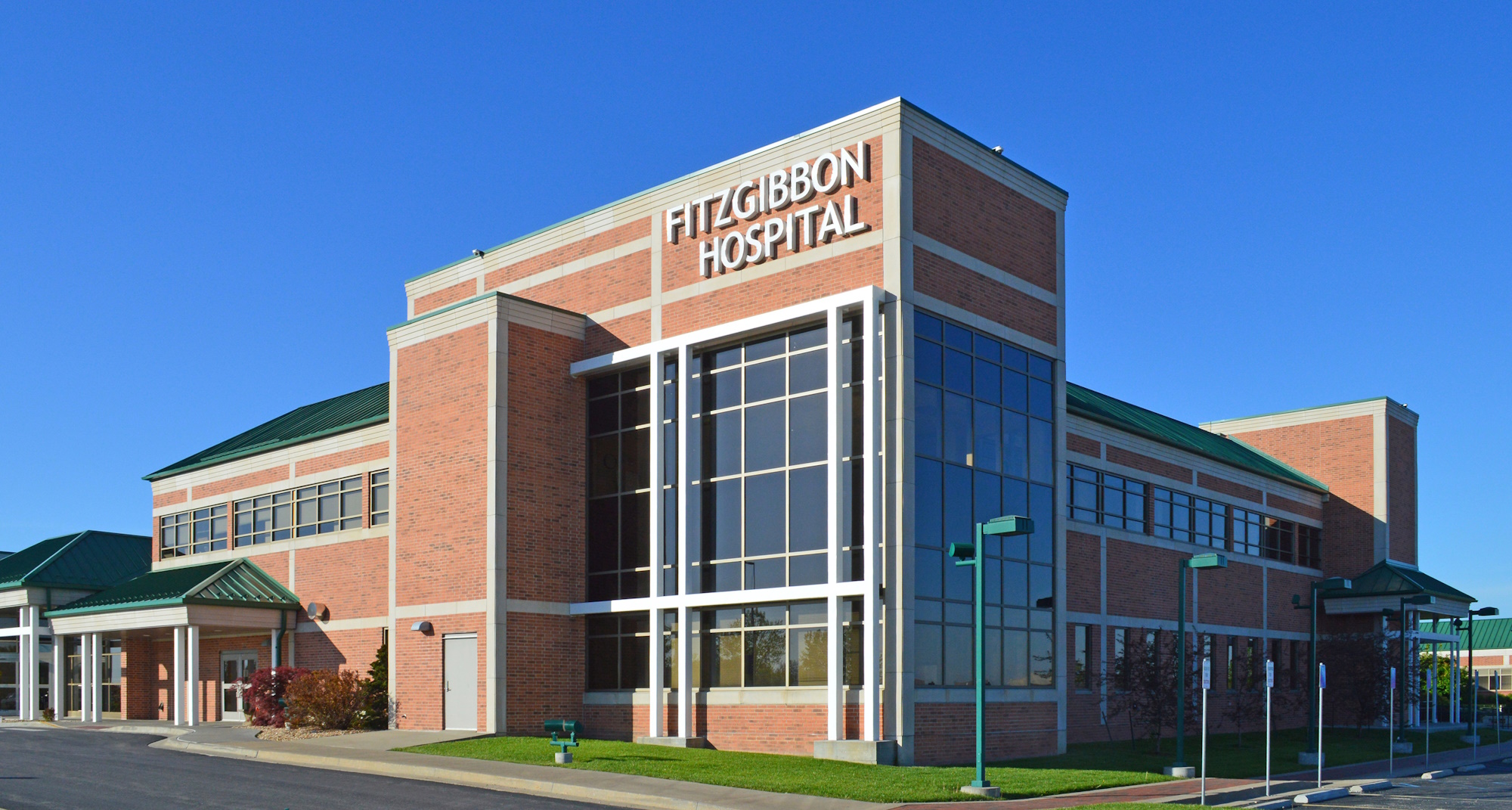
Jack's Story
“Dr. Uhrig told me, ‘Well, Jack, you beat the odds,’” said 84-year-old Jack Lenz of Marshall.
Two days earlier, after nearly three years and 85 different treatments, he was told he was cancer free.
Cancer free. Sweet words for a man who described his experience with the Fitzgibbon Community Cancer Center as “a saga in two parts.”
The saga included cancer journeys of his own as well as that of his wife of 61 years, Betty, who passed away in January 2017.
Lenz, who worked in agricultural lending at Wood & Huston Bank for 24 years before retiring in the spring of 2000, was successfully treated for early stage prostate cancer in 2001. His “treatment” was limited to surgical removal of the prostate, with no post-surgical radiation or chemotherapy necessary.
But a decade and a half later, in October 2016, he noticed a lump in his neck that just wouldn’t go away.
“I thought it was a swollen gland. But it kept getting bigger and bigger,” said Lenz, as he reached up to touch the right side of his neck, shaking his head back and forth in disbelief. “I should’ve gone to the doctor earlier.”
The swollen gland was cancerous. And Lenz was diagnosed with metastastic squamous cell carcinoma of the submandibular gland, which sits just below the jawline.
His first 17 weekly treatments were with taxol, a traditional chemotherapy drug.
Then Dr. Mark Tungesvik, M.D., of the Missouri Cancer Associates and medical oncologist at the Fitzgibbon Community Cancer Center, switched the treatment to a new biologic agent, which activates a patient’s own immune cells.
“Cancer cells hide, as I understand it,” Lenz explained. “This agent goes in and roots them out, and your natural immune system will kill them. I’ve had 68 of those every two weeks.”
In discussing his personal victory over cancer, Lenz, who said he plays golf three days a week, is active in Kiwanis Club, Covenant Presbyterian Church and still works one day a week at Community Bank, proclaimed that life today is “really pretty good.” But as he sat in his easy chair and softly stroked the fluffy cat perched on his lap, his eyes moved away and he gestured to the portrait of his late wife hanging above his fireplace.
“That’s her, you know, when she was 30,” he murmered.
He dubbed his journey with cancer a saga, but as he talked about his wife’s journey, it was clearly more of a poignant love story.
“She told me she felt like she was three months pregnant all the time,” he recalled. “It was ovarian cancer.”
Lenz recounted how his wife had been operated on in early 2014 to remove her ovaries and then took treatments at the Fitzgibbon Community Cancer Center for the rest of that year and most of the following two.
“…until Dr. Tungesvik told her there was nothing more they could do,” he said and then paused and again pointed to her portrait. “We were married 61 years, four months and one day.”
Toward the end of his wife’s treatment, Lenz finally saw a doctor for his own concerns. In describing not only his personal treatment at the Community Cancer Center but also that of his late wife, Lenz said he experienced nothing but caring and compassion.
“Dr. Tungesvik had this sign: ‘Prayer upon Request.’ How many doctors have you seen with a sign like that on his desk? I remember Betty asking him if that sign was right, and he took her hand and he prayed with her,” said Lenz. “That really says something.”
Lenz shared not only the compassion of the physicians but also the competency and caring attitude of the staff.
“They are very competent. You can say all the flowery words you want to about that Cancer Center, but they’re terrific,” he said. “Mackenzie, Melissa, Heidi, Heather - all of them – they are absolutely wonderful. They treat their patients with such loving kindness. Those girls…they should be given all the credit.”
Lenz, who has three grown sons, likened the cancer staff to family.
“We have a good time. We laugh and carry on, and I tell them jokes. I told them one day, ‘You girls are like my daughters.’ And one of them chimed in, ‘Well don’t forget us at Christmastime then!’” he chuckled.
When asked what advice he would give to others, he answered, “Go see your doctor. Catch your cancer as early as you can. Take your exams.”
And to those facing a cancer diagnosis?
“I would recommend this Cancer Center to anybody and everybody.”



.png)